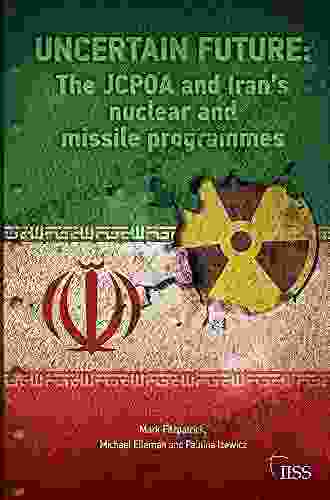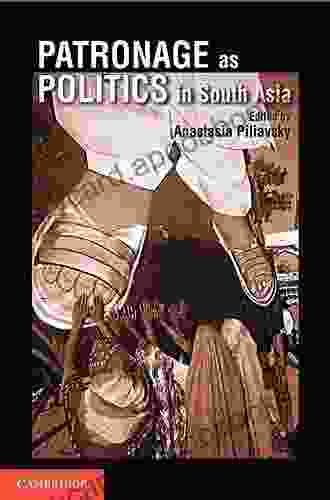Patronage as Politics in South Asia: Unveiling the Hidden Hand of Power and Influence

Patronage, an age-old practice prevalent in various regions of the world, is an intricate system of power dynamics that plays a significant role in shaping social, economic, and political landscapes. In South Asia, patronage has been deeply ingrained within the fabric of society for centuries, serving as an influential force that permeates all aspects of life. This extensive article delves into the captivating world of patronage in South Asia, exploring its multifaceted nature, historical evolution, diverse manifestations, and profound impact on the region's political and societal framework.
Defining Patronage and Its Significance
Patronage, in its essence, is a mutually beneficial relationship between two parties, typically an individual of higher status (patron) and one of lower status (client). The patron extends resources, support, or protection to the client, who, in turn, provides services, loyalty, or political support to the patron. This reciprocal arrangement forms the foundation of patronage networks that extend across various societal levels, creating a complex web of interconnections.
5 out of 5
| Language | : | English |
| File size | : | 18518 KB |
| Screen Reader | : | Supported |
| Print length | : | 484 pages |
| Hardcover | : | 372 pages |
| Item Weight | : | 1.47 pounds |
| Dimensions | : | 6 x 1.1 x 9 inches |
In South Asia, patronage has evolved into a sophisticated and deeply ingrained system that has been instrumental in shaping the region's political and social structures. It influences everything from electoral outcomes to resource allocation, access to justice, and even personal relationships. Understanding patronage is crucial for comprehending the underlying dynamics that govern South Asian societies and the exercise of power within them.
Historical Roots and Manifestations of Patronage
The roots of patronage in South Asia can be traced back to ancient times. In pre-colonial societies, patronage was deeply intertwined with kinship and caste systems, with powerful individuals and families extending protection and support to their followers and dependents. During the colonial era, patronage became further entrenched as local elites collaborated with the British administration to maintain their influence and privilege.
Post-independence, patronage continued to flourish in South Asia, adapting to the changing political landscape. Political parties and leaders skillfully employed patronage networks to mobilize voters, reward loyalists, and maintain their hold on power. Patronage also manifested itself in various forms, including:
- Clientelism: Direct exchange of goods, services, or favors between politicians and voters.
- Job patronage: Distribution of government jobs and appointments based on political affiliation.
- Development patronage: Allocation of public resources and infrastructure projects to favored constituencies.
- Social patronage: Provision of social services, such as healthcare and education, through patronage networks.
Patronage and Electoral Politics
In South Asia, patronage plays a critical role in electoral politics. Political parties and candidates rely heavily on patronage networks to mobilize voters, secure campaign funds, and establish a loyal following. Patronage-based relationships form the backbone of electoral machines, shaping voting patterns and influencing election outcomes.
However, the use of patronage in electoral politics has also raised concerns about corruption, vote-buying, and the undermining of democratic processes. Patronage networks can distort electoral outcomes, giving undue advantage to candidates with superior resources and connections.
Patronage and Resource Allocation
Patronage also extends its influence beyond electoral politics, shaping the allocation of resources and the distribution of wealth. In South Asia, access to resources, such as land, water, and credit, is often mediated through patronage networks. Individuals and groups with connections to powerful patrons enjoy preferential treatment, while those outside these networks face significant barriers.
The unequal distribution of resources through patronage can perpetuate social and economic inequalities, hindering the development of a fair and just society. It can also lead to corruption and rent-seeking behavior, as individuals seek to exploit their connections for personal gain.
Patronage and Access to Justice
Patronage can also influence access to justice and the rule of law in South Asia. In many cases, individuals rely on patronage networks to navigate complex legal systems, seek protection from powerful adversaries, or secure favorable outcomes in court cases.
While patronage can provide a measure of protection for the marginalized, it can also undermine the impartiality of the justice system. When access to justice is determined by personal connections rather than the merits of a case, it erodes the rule of law and perpetuates a system of unequal treatment.
Patronage and Social Relationships
Patronage is not solely confined to the realm of politics and resource allocation. It also permeates social relationships in South Asia, shaping interactions between individuals and communities. Patrons provide support, guidance, and protection to their clients, who, in turn, offer loyalty, respect, and services.
Patronage-based relationships can provide a sense of belonging and security, particularly in societies where formal institutions are weak or inaccessible. However, they can also create dependencies and reinforce hierarchical structures, limiting individual autonomy and social mobility.
The Rise of Anti-Patronage Movements
In recent years, there has been a growing recognition of the negative consequences of patronage in South Asia. Anti-patronage movements have emerged, advocating for transparency, accountability, and the strengthening of democratic institutions.
These movements have had some success in reducing patronage-based practices and promoting more equitable and just societies. However, patronage remains deeply ingrained in many aspects of South Asian life, and its eradication poses a significant challenge.
Patronage in South Asia is a multifaceted and deeply entrenched phenomenon that has far-reaching implications for the region's political, economic, and social landscapes. While patronage can provide benefits in terms of social protection and resource mobilization, it also carries the risk of corruption, inequality, and the undermining of democratic principles.
Addressing the challenges posed by patronage requires a multi-pronged approach that includes strengthening democratic institutions, promoting transparency and accountability, and fostering a culture of civic engagement. By understanding the complexities of patronage and its impact on South Asian societies, we can work towards creating more just, equitable, and participatory societies.
5 out of 5
| Language | : | English |
| File size | : | 18518 KB |
| Screen Reader | : | Supported |
| Print length | : | 484 pages |
| Hardcover | : | 372 pages |
| Item Weight | : | 1.47 pounds |
| Dimensions | : | 6 x 1.1 x 9 inches |
Do you want to contribute by writing guest posts on this blog?
Please contact us and send us a resume of previous articles that you have written.
 Book
Book Novel
Novel Page
Page Chapter
Chapter Text
Text Story
Story Genre
Genre Reader
Reader Library
Library Paperback
Paperback E-book
E-book Magazine
Magazine Newspaper
Newspaper Paragraph
Paragraph Sentence
Sentence Bookmark
Bookmark Shelf
Shelf Glossary
Glossary Bibliography
Bibliography Foreword
Foreword Preface
Preface Synopsis
Synopsis Annotation
Annotation Footnote
Footnote Manuscript
Manuscript Scroll
Scroll Codex
Codex Tome
Tome Bestseller
Bestseller Classics
Classics Library card
Library card Narrative
Narrative Biography
Biography Autobiography
Autobiography Memoir
Memoir Reference
Reference Encyclopedia
Encyclopedia Friedl Weiss
Friedl Weiss Sonya Larson
Sonya Larson Andrea Frazer
Andrea Frazer Dan Hancox
Dan Hancox Taylor Neptune
Taylor Neptune Kenneth J Schoon
Kenneth J Schoon Lindsay Taylor Dellinger
Lindsay Taylor Dellinger Danyce Gustafson
Danyce Gustafson Jake Shimabukuro
Jake Shimabukuro Richard Gendron
Richard Gendron Henry Adams
Henry Adams Bienvenu Mavakala
Bienvenu Mavakala Amy E Lerman
Amy E Lerman Caryn Lix
Caryn Lix Landmark Publications
Landmark Publications Amy Newmark
Amy Newmark Amy Tyson
Amy Tyson Anderson Reynolds
Anderson Reynolds Amy Sutherland
Amy Sutherland Salih Reisoglu
Salih Reisoglu
Light bulbAdvertise smarter! Our strategic ad space ensures maximum exposure. Reserve your spot today!

 Amir SimmonsUncover the Secrets of Restful Nights: A Journey with "The Innocent Seldom...
Amir SimmonsUncover the Secrets of Restful Nights: A Journey with "The Innocent Seldom...
 Edison MitchellThe JCPOA and Iran's Nuclear and Missile Programmes: A Comprehensive Analysis
Edison MitchellThe JCPOA and Iran's Nuclear and Missile Programmes: A Comprehensive Analysis Brian WestFollow ·15.1k
Brian WestFollow ·15.1k Tennessee WilliamsFollow ·3.9k
Tennessee WilliamsFollow ·3.9k Wade CoxFollow ·8.3k
Wade CoxFollow ·8.3k Jerome BlairFollow ·3.1k
Jerome BlairFollow ·3.1k Gabriel HayesFollow ·13.4k
Gabriel HayesFollow ·13.4k David PetersonFollow ·16k
David PetersonFollow ·16k Dwight BlairFollow ·7.9k
Dwight BlairFollow ·7.9k Vladimir NabokovFollow ·3.9k
Vladimir NabokovFollow ·3.9k

 Roald Dahl
Roald DahlImmerse Yourself in a Mesmerizing Tapestry of Creativity:...
Prepare to be captivated by "Spectra," an...

 Clarence Brooks
Clarence BrooksUnleash Your Inner Taylor with Red Piano Vocal Guitar:...
Embrace the Red Era...

 Jeffrey Hayes
Jeffrey HayesUnlock Your Child's Academic Potential: A Comprehensive...
In today's rapidly changing...

 William Golding
William GoldingBrave Elizabeth: A Captivating Tale of Resilience and...
Immerse Yourself in a Riveting Historical...

 Curtis Stewart
Curtis StewartUnveiling the Heartfelt Melodies of Taylor Swift: A...
Step into the enchanting world of Taylor...
5 out of 5
| Language | : | English |
| File size | : | 18518 KB |
| Screen Reader | : | Supported |
| Print length | : | 484 pages |
| Hardcover | : | 372 pages |
| Item Weight | : | 1.47 pounds |
| Dimensions | : | 6 x 1.1 x 9 inches |










